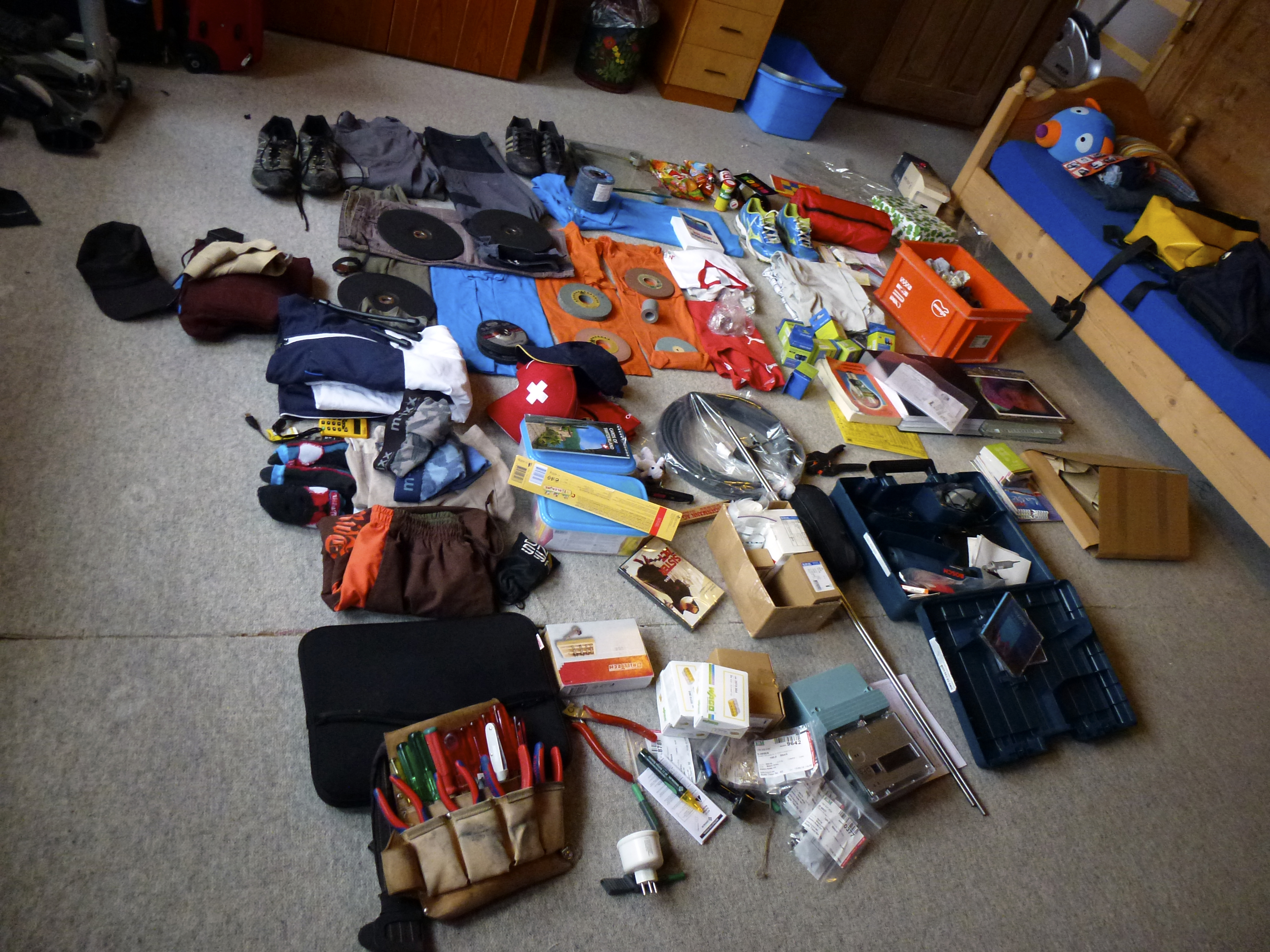Aid work: an alternative to army service

Some 15,000 young Swiss men performed community service last year instead of joining the army; 162 of them were deployed overseas. Serving abroad is a little known option that makes high demands of recruits. It is set to remain that way.
Such alternative service abroad could mean working as a laboratory assistant for the Swiss Tropical and Public Health Institute or as a truck driver for Médecins Sans Frontières in Africa. It could be teaching maths in Brazil, giving instruction in using solar technology to disinfect drinking water, or working as an expert on well projects in a developing country.
These are among the options in the field of development aid or humanitarian assistance that are available through the Central Office for Civilian Service in Thun to young Swiss who are fit for military service and interested in a mission outside Switzerland. But the requirements are high.
The candidate needs to have completed vocational training or at least two years of study. He must also have some knowledge of the official language of the country where he will be serving and have experience of living abroad.
“And by experience of living abroad I don’t mean holidays in Brazil; he needs to know the language and the local conditions,” Samuel Werenfels, the head of the Central Office for Civilian Service, told swissinfo.ch.
“If the young man does not appreciate the risks associated with the mission or have an awareness of the living conditions we don’t approve his deployment overseas.”
In 2012 there was a total of 162 foreign missions (2011: 171, 2010: 131, 2009: 97, 2008: 73). They accounted for just 1% of all alternative civilian service deployments.
Deployments abroad are carried out in the framework of development cooperation or humanitarian assistance. They are usually in the so-called “priority countries” of the Swiss Agency for Development and Cooperation (SDC).
A total of 15,000 young men deemed fit for military duty performed alternative civilian service in 2012 (2011: 14,349).
They provided a total of 1.2 million days’ service (2011: 1.1 million days).
Alternative service recruits worked for 3,527 agencies (2011: 3,078 agencies).
Recruits served in hospitals, old peoples’ homes, institutions for children and the disabled, and in environmental and nature protection programmes.
The number of days of civilian service provided has more than quadrupled in the past ten years.
Low rate, high popularity
“We’re actually in a bit of a dilemma,” said Werenfels, a lawyer by profession.
“Young people really want to go abroad – there’s a big demand. But the requirements for serving in other countries are very high, and most of them don’t fulfil them.”
Werenfels set up the civilian service and personally handled the first request for alternative service in Switzerland’s history in 1996. Foreign missions were possible even then, although the number of agencies taking recruits was small. Since then it has grown year by year. However, although civilian service assignments abroad have more than doubled in the past four years they still account for just one per cent of all community service placements.
One reason for the low rate – apart from the relatively strict conditions – is that the option of serving abroad is not widely publicised.
“We deliberately keep it quiet and don’t advertise it because since the test on conscientious objection to military service was abolished in 2009 we have experienced a massive increase in applications,” said Werenfels.
Thomas Anderegg regrets this low-key approach and considers the procedure for serving abroad to be too complicated. The 22-year-old, who has a business administration qualification and is about to graduate of the officers’ training school, signed a petition at the 2011 youth session of parliament calling for civilian service to be extended in the area of development cooperation.
More information about the option should be made available to conscripts and access should be simplified, the young Radical party member believes. “Because it is better to send people rather than money to these countries. It would also be good for Switzerland’s image.”
The Swiss Agency for Development and Cooperation (SDC) confirms that civilian service overseas is popular among young people. “These are young people who are interested in other cultures and countries and who are also prepared to expose themselves to difficult situations,” the foreign ministry information service told swissinfo.ch.

More
Lending a hand and gaining insight
Specialists in demand
Before an agency can carry out foreign missions with civilian service recruits it first has to be recognised by the civilian service office and approved by the SDC. The recruiting agencies must also be based in Switzerland. The aid organisations Helvetas, Caritas and Terre des hommes all offer places to alternative service recruits, as do SDC cooperation offices and NGOs that work with the SDC.
“Our credo is: we send specialists into developing countries, not just workers. These countries have enough people to do the work. What is usually lacking is a certain know-how,” said Werenfels.
It is clear that these areas of deployment can also be problematic and entail risks. In the case of a country considered dangerous, recruits must attend courses on security and on “dealing with conflicts in a non-violent way”.
“We also systematically consult the foreign ministry’s travel advisories and in case of doubt check the security situation with the local embassies. There are no missions to countries in the highest security risk category,” said Werenfels.
Those fit for call-up but who do not want to serve in the military for reasons of conscience have since 1996 had the option of alternative service. This lasts 1.5 times as long as military service – a total of 390 days.
Men who want to join up to the civilian service first have to take a test of conscience. Since 2009 this has simply meant explaining why their conscience does not permit them to engage in military service.
Their willingness to serve 50% longer than they would in the military is seen as proof of the strength of their conviction. As the number of civilian service requests has since increased massively, the government has tightened the entry requirements.
(Translated from German by Morven McLean)

In compliance with the JTI standards
More: SWI swissinfo.ch certified by the Journalism Trust Initiative








You can find an overview of ongoing debates with our journalists here . Please join us!
If you want to start a conversation about a topic raised in this article or want to report factual errors, email us at english@swissinfo.ch.